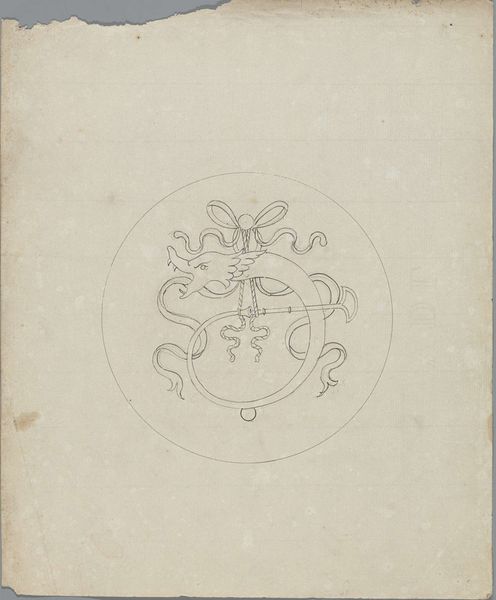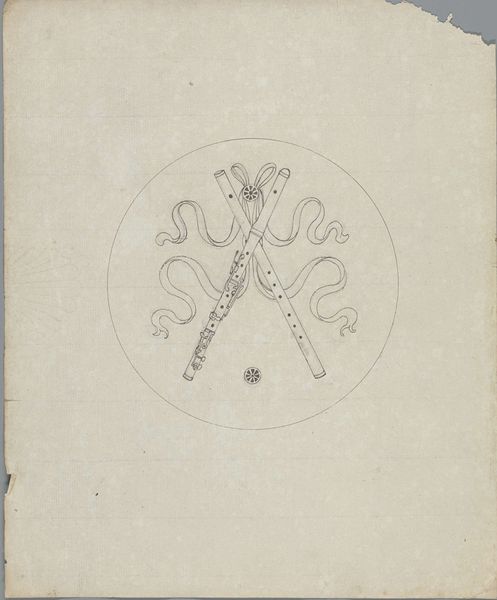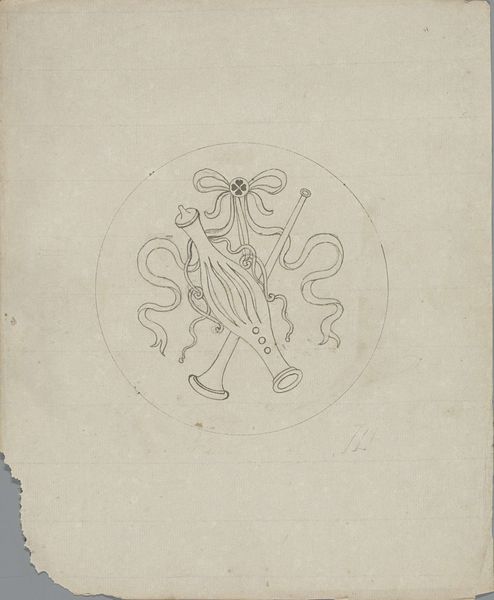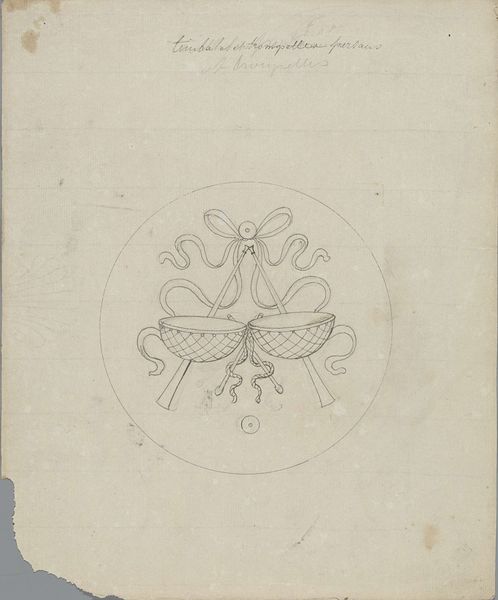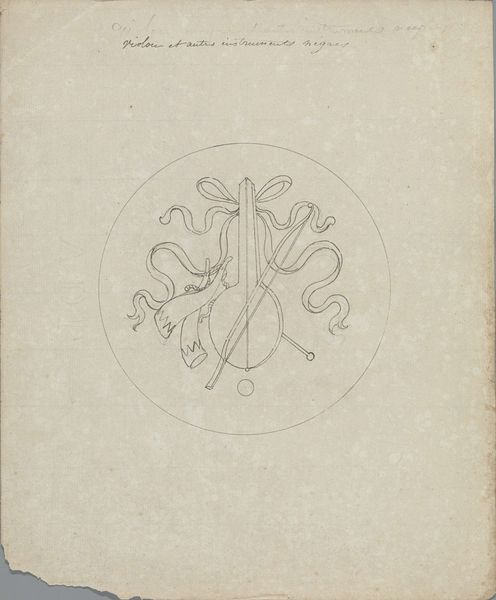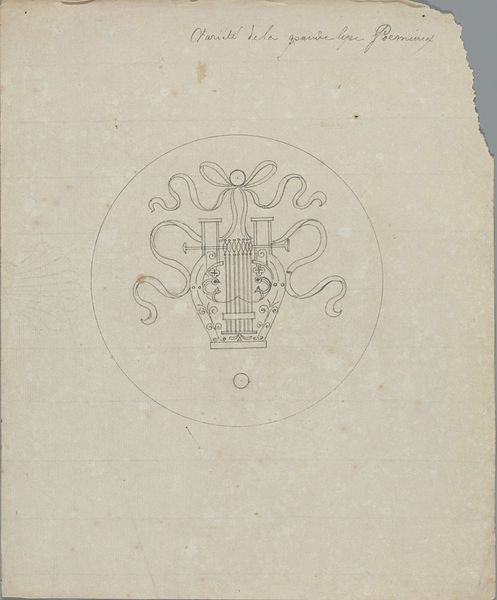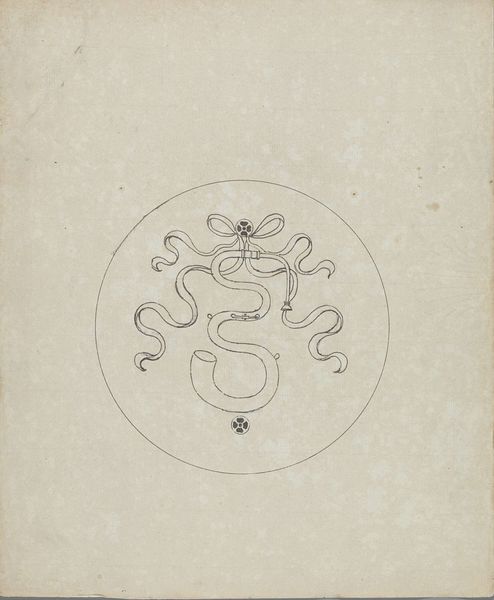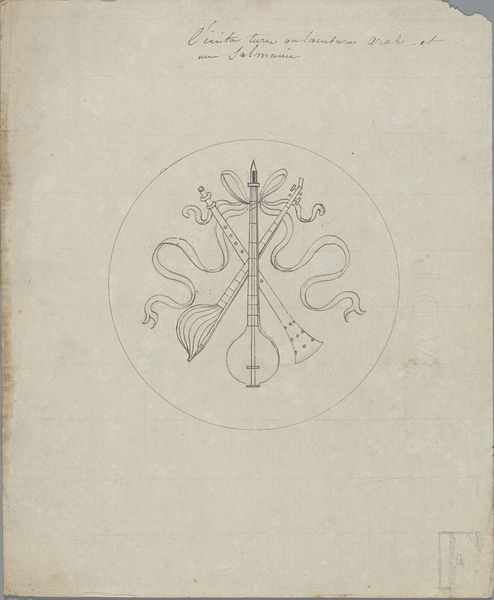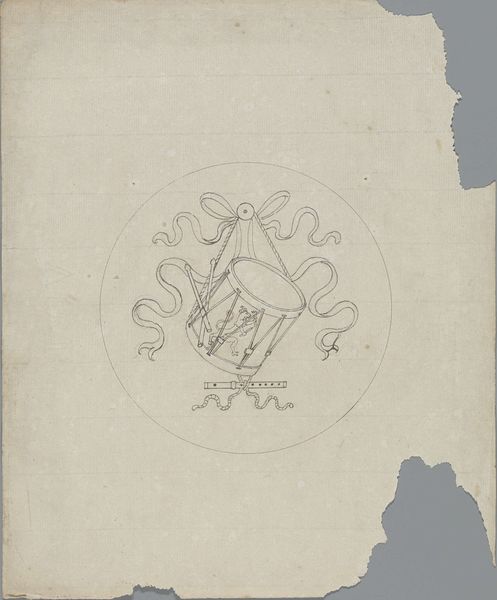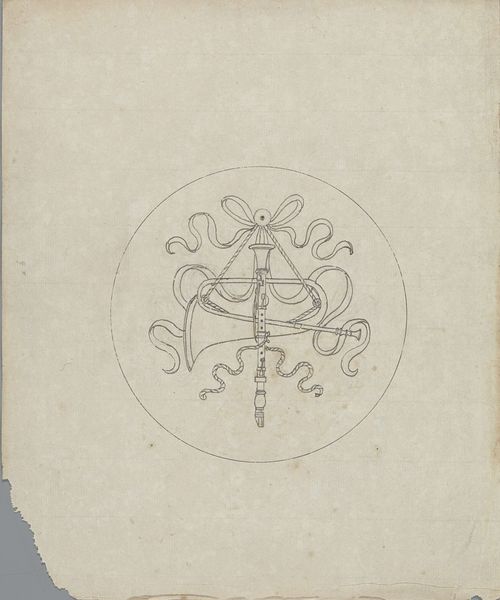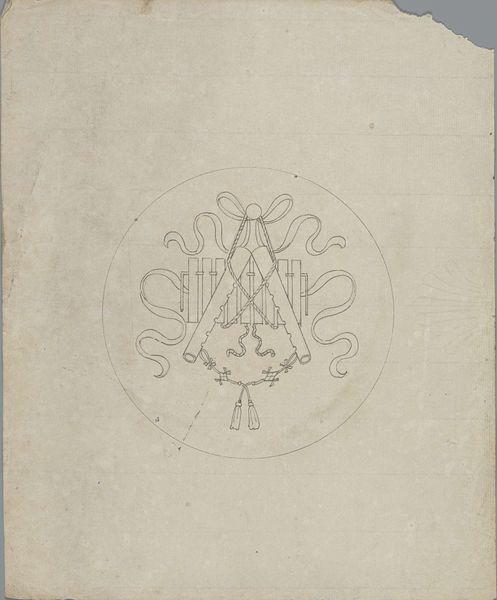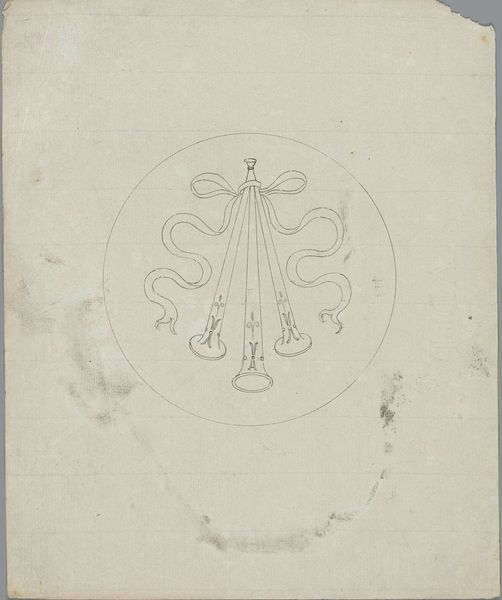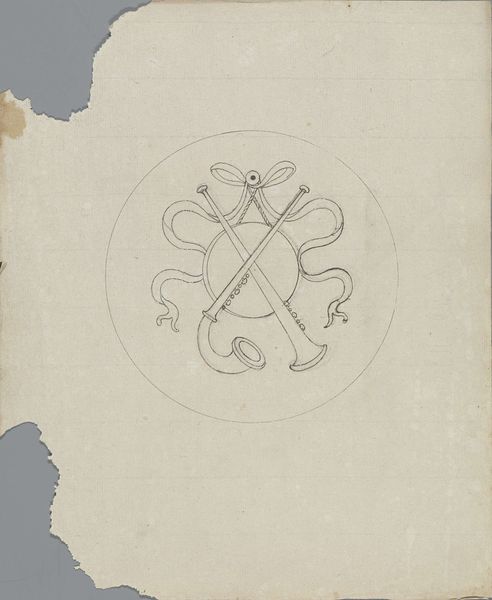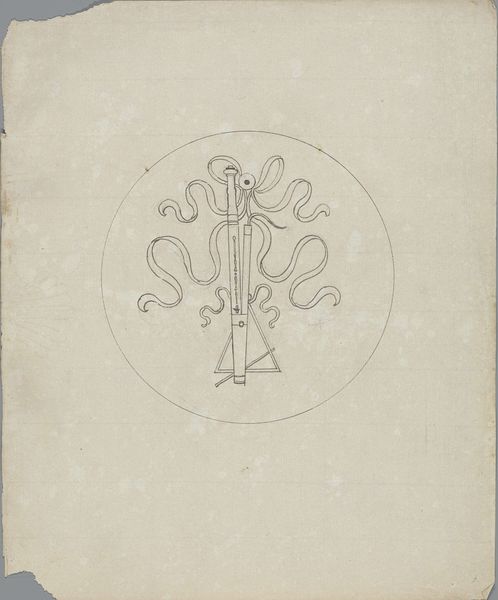
drawing, paper, pencil
#
portrait
#
drawing
#
classical-realism
#
paper
#
geometric
#
pencil
#
line
#
academic-art
Dimensions: height 253 mm, width 208 mm, diameter 123 mm
Copyright: Rijks Museum: Open Domain
Pierre Félix van Doren’s drawing depicts a 14th-century vielle, or fiddle, adorned with ribbons and floral motifs. The vielle itself is a symbol of courtly love and entertainment, commonly found in medieval art. Consider the ribbons: they might initially strike us as decorative. Yet, if we delve into the symbolic language of art, we discover ribbons often represent bonds and connections. Think of the ribbons binding laurel wreaths in Roman triumphs, symbolizing victory and honor. The floral motifs, too, are not mere decoration. The rosette, a stylized flower, has ancient roots, appearing in Mesopotamian art as a symbol of divine power and regeneration. Now, consider how these symbols work together. The vielle, associated with pleasure and festivity, combined with ribbons suggesting attachment and rosettes alluding to renewal, hint at a deeper human desire: the longing for lasting joy, eternally fresh and resonant. It’s a quest that transcends time, echoing in our subconscious, continually resurfacing in art and culture.
Comments
No comments
Be the first to comment and join the conversation on the ultimate creative platform.
